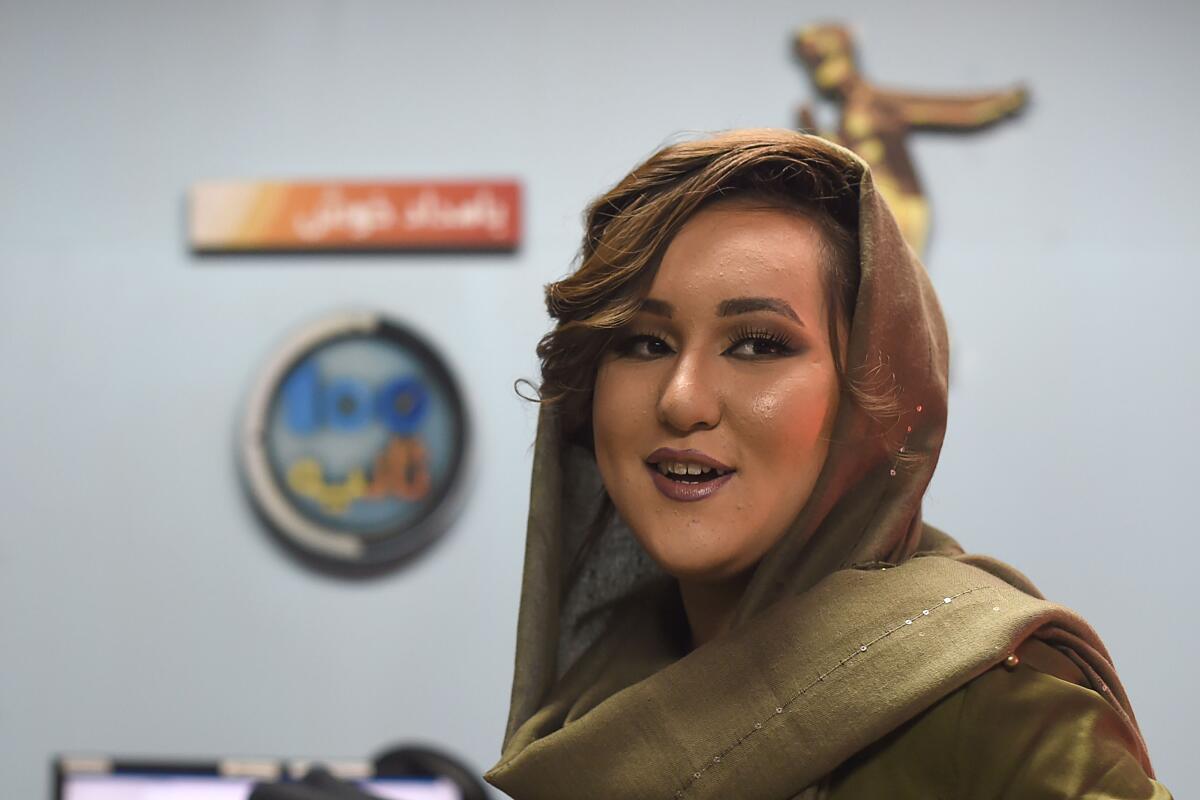Trump killed the Afghanistan peace process. But there’s still a chance to get it right

- Share via
President Trump went from inviting the Taliban to Camp David to slamming the door on peace talks meant to end America’s Afghanistan stalemate.
Far from being a setback, the cancellation of talks between Taliban and U.S. officials has opened up the chance to do this right. Instead of a dangerous half-deal with the terrorist Taliban, there is the potential to achieve a just and lasting peace in Afghanistan, one that aligns American security with that of the Afghan people.
The U.S. never should have accepted the Taliban demand of excluding our partners, the Afghan government, from peace talks. Taliban leaders dismiss Afghanistan President Ashraf Ghani’s government as illegitimate. But Ghani was chosen in democratic elections, an example of exactly the kind of nation-building Americans and Afghans by the thousands have fought and died to bring about.
Nor should the U.S. settle for less than real peace in exchange for troop withdrawal. The administration seemed ready “in principle” to withdraw primarily in exchange for pie-in-the-sky assurances from the Taliban that it wouldn’t harbor another Al Qaeda plotting against America. The deal also included vague promises that Taliban leaders would sit down with the elected Afghan government. The compact would have left Afghanistan’s fledgling democracy and security forces at the mercy of Taliban fighters.
Tilting the talks toward the Taliban ignores realities on the ground. The rebels control just 15% of Afghanistan’s territory. Their approval rating among Afghans, according to Saad Mohseni, head of the nation’s largest media company, has never been higher than 12%. As a 23-year-old Afghan man — wounded in the same Sept. 5 Taliban bombing that killed Army Sgt. 1st Class Elis A. Barreto Ortiz — said, “There is no point in trying for peace when the Taliban does such terrible things to innocent people.”
The White House and its chief negotiator, former U.S. ambassador to Afghanistan Zalmay Khalilzad, should heed the message of Sahraa Karimi, whose film “Hava, Maryam, Ayesha” premiered at the Venice Film Festival just as the U.S.-Taliban talks broke down. Karimi explicitly links women’s political and social gains in Afghanistan — a signal democratic achievement of the “forever war” — with an end to the fighting that has engulfed her nation. “Gender equality,” she wrote to me, “enables a country to gain prosperity and is fundamental for global peace.”
American commentators pressing for withdrawal dwell on the “waste” of a nearly two-decade commitment of U.S. troops in Afghanistan. But Afghans have made huge strides in what is actually a short period of time. The Afghanistan government shows the nation’s gross national income has increased fivefold since 2003 (U.S. troops arrived in 2001). The Taliban banned education for girls; now about 4 million are in school. Women are working in every aspect of the economy and in government (more than 25% of the Afghan Parliament is female).
On the global stage, the Afghan cricket team cemented its participation in the World Cup this year with a daredevil game that almost bested India, ranked No. 2 in the world. The Afghan National Institute of Music sent an all-female orchestra on a world tour, an Afghan female robotics team competed in an international contest and Afghan journalists such as Lotfullah Najafizada have been recognized in their fight for press freedom. When the Taliban were in power, media were suppressed, music was forbidden, and competing in sports competitions, like education for girls, was banned.
Triumphs in so many spheres have provided Afghans a growing sense of identity, national pride and view of the advantages civil society offers. Look at the evolution of “Afghan Star,” the wildly popular “American Idol”-inspired program whose 14th season ended in March. The show puts men and women of different ethnic backgrounds on the same stage, promoting meritocracy and democracy through public voting to select the winner.
The number of women participating in “Afghan Star” has increased steadily since the first telecast in 2005. This year, for the first time, a woman won, with up to a third of the country’s population voting. Zahra Elham, an 18-year-old Hazara (a minority in Afghanistan) from a province that was occupied by the Taliban in 2018, declared that her victory meant that “all the girls in Afghanistan have won.”
A deal with the Taliban alone would risk upending these hard-earned advances. As if to underline the perils of choosing the Taliban alone as a peace partner, since Trump announced the death of negotiations on Sept. 9, the group has made good on its vow to disrupt Afghan national elections later this month. It bombed a Ghani campaign rally, killing at least 26; launched attacks in Kabul near the U.S. Embassy; and bombed a hospital, killing dozens and wounding nearly 100. America’s stepped up response killed Afghan civilians last week, in a drone strike meant to take out Islamic State militants.
Secretary of State Mike Pompeo has set a precondition for reopening peace talks: The Taliban must “begin to demonstrate a genuine commitment to peace rather than continue the violence and destruction.” There should be other preconditions, as well: Talks must include representatives of the Afghan government, and negotiators must seek a cease-fire for Afghans in addition to protection for the U.S. from terrorist attacks.
The Taliban’s cooperation will no doubt be required to secure peace in Afghanistan, but it is wrong, and unworthy of U.S. global leadership, to prioritize the Taliban’s and the Trump administration’s short-term goals of U.S. troop withdrawal over the prospects for a peaceful, stable society in Afghanistan.
Cynthia P. Schneider served as U.S. ambassador to the Netherlands from 1998 to 2001. She is a professor in the practice of diplomacy and co-director of the Laboratory for Global Performance and Politics at Georgetown University.
More to Read
A cure for the common opinion
Get thought-provoking perspectives with our weekly newsletter.
You may occasionally receive promotional content from the Los Angeles Times.






